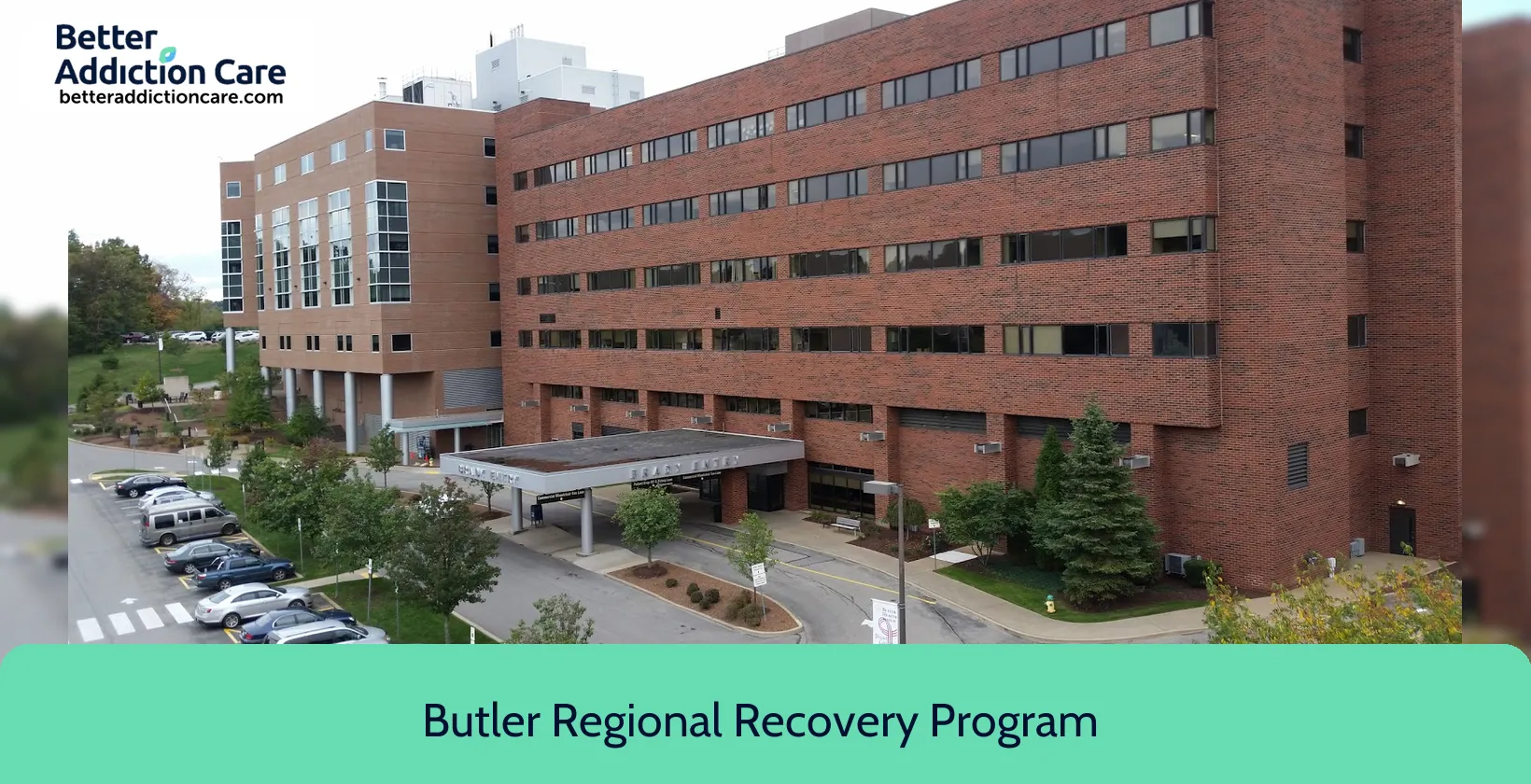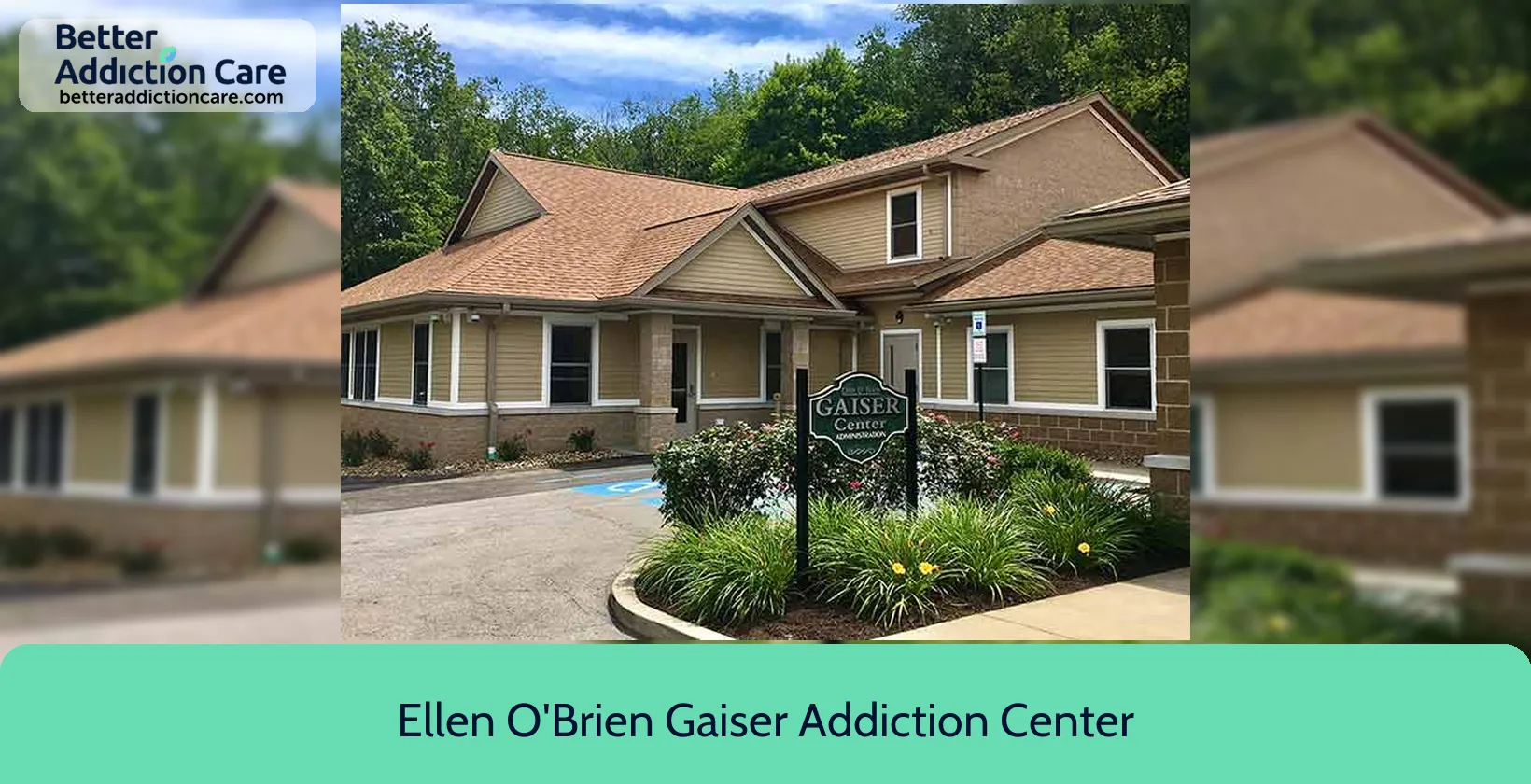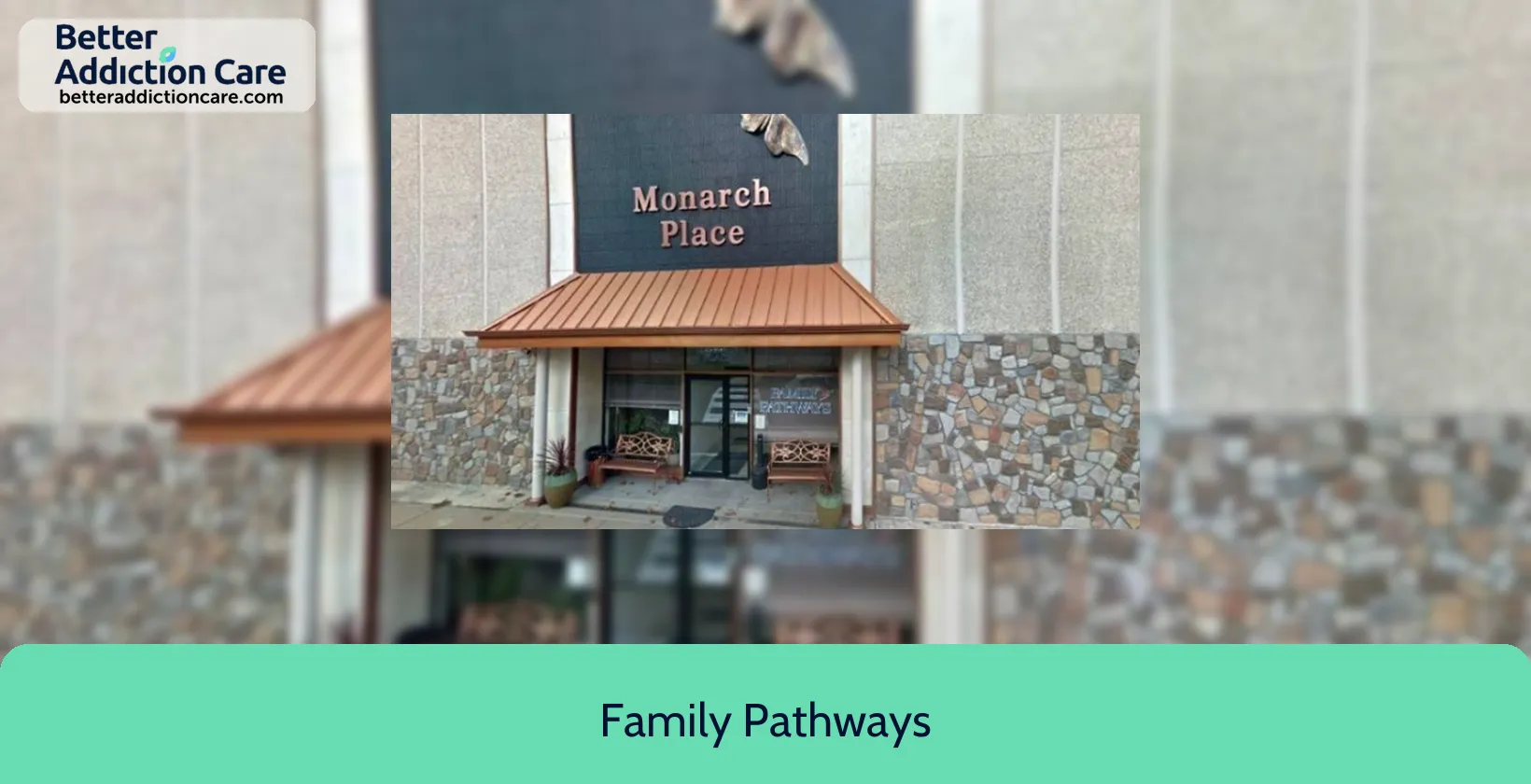Family Pathways
Overview
Family Pathways is a private rehabilitation facility that treats mental health and dual diagnosis conditions. It is located in Butler, Pennsylvania. Family Pathways is dedicated to promoting mental, emotional, and physical health and offers a variety of programs to assist people and families in overcoming their particular obstacles.
The approach of the center is based on empathy and understanding; rather than concentrating on what is wrong, it aims to comprehend each person's experiences and provide help where it is most needed. Their programs are intended to empower participants by offering a secure environment in which they may recover from invisible injuries and psychological traumas that may be more severe than physical ones.
Family Pathways places an emphasis on a comprehensive approach to care, fusing individualised assistance that is suited to each patient's requirements with evidence-based treatment techniques. As Laurell K. Hamilton so eloquently put it, "mental and emotional scars can be deeper and more painful than any visible wound." This notion serves as the inspiration for this ideology. The committed staff at the center works directly with clients to address these issues, assisting them in developing resilience and strength as they move toward recovery.
Family Pathways at a Glance
Payment Options
- Cash or self-payment
- Medicaid
- State-financed health insurance plan other than Medicaid
- Private health insurance
- Federal military insurance (e.g., TRICARE)
Assessments
- Screening for tobacco use
- Comprehensive mental health assessment
- Comprehensive substance use assessment
Age Groups
- Seniors or older adults
- Young adults
- Children/adolescents
- Adults
- Seniors
Ancillary Services
- Case management service
- Court-ordered outpatient treatment
- Diet and exercise counseling
- Education services
- Family psychoeducation
Highlights About Family Pathways
6.83/10
With an overall rating of 6.83/10, this facility has following balanced range of services. Alcohol Rehabilitation: 8.00/10, Drug Rehab and Detox: 6.00/10, Insurance and Payments: 6.00/10, Treatment Options: 7.33/10.-
Alcohol Rehabilitation 8.00
-
Treatment Options 7.33
-
Drug Rehab and Detox 6.00
-
Insurance and Payments 6.00
Treatment At Family Pathways
Treatment Conditions
- Mental health treatment
- Substance use treatment
- Co-occurring Disorders
- Alcoholism
Care Levels
- Outpatient
- Detoxification
- Outpatient detoxification
- Hospital inpatient detoxification
- Hospital inpatient treatment
Treatment Modalities
- Couples/family therapy
- Group counseling
- Cognitive behavioral therapy
- Dialectical behavior therapy
- Integrated Mental and Substance Use Disorder treatment
Ancillary Services
Languages
- Sign language services for the deaf and hard of hearing
- Spanish
- Other languages (excluding Spanish)
- Portuguese
Special Programs
- Clients with co-occurring mental and substance use disorders
- Active duty military
- Members of military families
- Criminal justice (other than DUI/DWI)/Forensic clients
- Clients with HIV or AIDS
Get Help Now
Common Questions About Family Pathways
Contact Information
Other Facilities in Butler

6.83

7.73

7.09

7.11

7.22

7.52
DISCLAIMER: The facility name, logo and brand are the property and registered trademarks of Ellen O'Brien Gaiser Addiction Center 165 Old Plank Road, and are being used for identification and informational purposes only. Use of these names, logos and brands shall not imply endorsement. BetterAddictionCare.com is not affiliated with or sponsored by Ellen O'Brien Gaiser Addiction Center 165 Old Plank Road.

